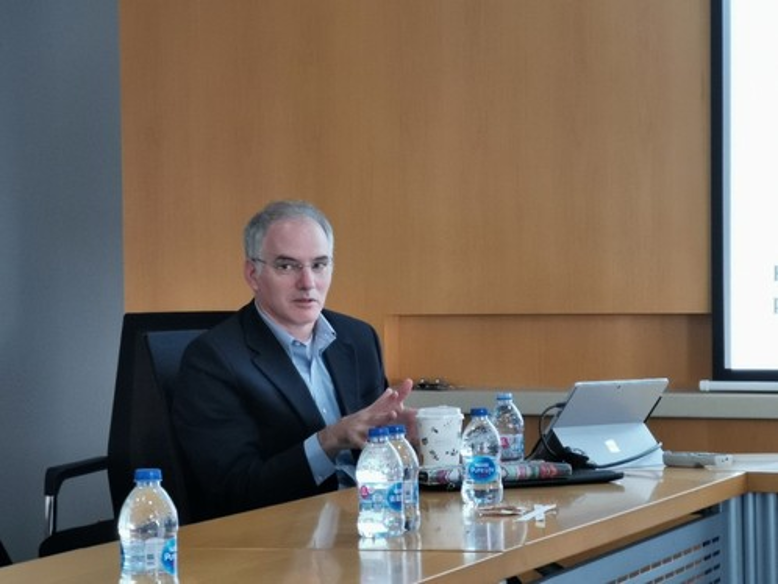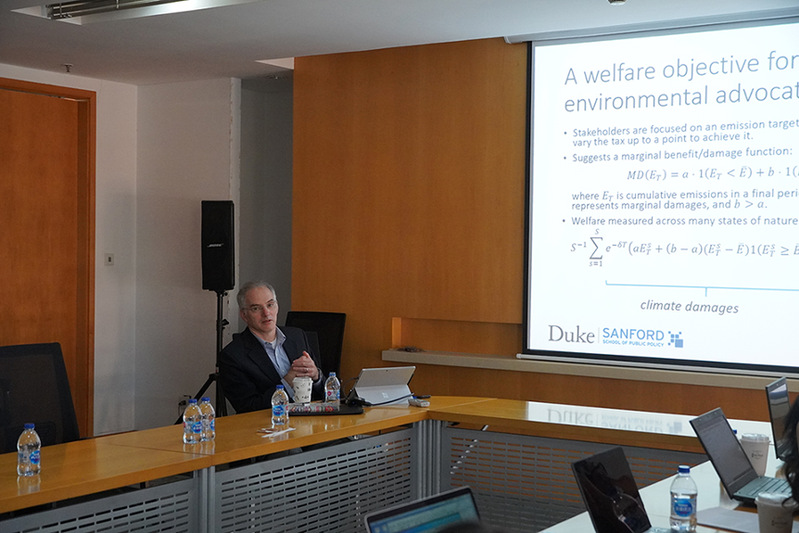Events



On 8th November 2019, the Institute for Global Public Policy (IGPP) and the School of Economics jointly held the 21th event of the Fudan-LSE Lecture Series in Room 514, School of Economics. Professor Libo Wu, Director of Center for Energy Economics Strategy Studies chaired the lecture. Professor William Pizer, deputy dean of Sanford School of Public Policy at the Duke University, delivered the lecture “Using Carbon Taxes to Meet an Emission Target”.

Professor Pizer joined Sanford School of Public Policy at Duke University in 2011 and also served as a researcher in Nicholas Institute for environment Policy Solutions. Before joining Duke University, Professor Pizer served as senior environmental economist on the White House Council of Economic Advisers from 2001 to 2002. He served as a researcher at Resources for the Future (RFF) for more than ten years. He served as Deputy Assistant Secretary of the U.S. Department of the Treasury and was in charge of Environmental and Energy Affairs from 2008 to 2011.
Professor Pizer first emphasized the importance of carbon tax policy in reducing carbon dioxide emissions, and demonstrated the importance and overall logic of his research that is originated from the current policy status. Specifically, considering that there may be discontinuities in the loss function, Professor Pizer pointed out that the emission target value can be used as a breakpoint to transform the loss function into a piecewise function which is closer to the real situation. Professor Pizer then explained possible carbon tax adjustment paths, which can be roughly divided into four types: 1) Imposing punitive tax rate if actual emissions exceed the target value; 2) Adjusting initial carbon tax rate; 3) Setting different growth rates of carbon tax rate according to the actual emissions; 4) Implementing the target strictly which is similar to permit trading.
Professor Pizer set the change of carbon dioxide emission intensity and GDP growth rate as Markov process and use DIEM-CGE model to simulate and analyze the results of social welfare, average abatement cost and average social loss. Design of carbon tax should base on maximization of social welfare and different forms of social welfare function will also affect the impacts of different policy scenarios.
